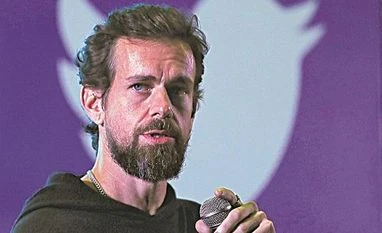Twitter’s flip-flops since Elon Musk bought it last year have been rather exhausting. The microblogging platform’s latest decision to give the blue tick, a badge of verification, to only those who pay for it (with some exceptions) has reportedly put impersonators in an overdrive and has many of its users looking for an alternative.
For years, in fact, there has been a search for a viable platform that would be an alternative to Twitter, one that would match its reach and popularity but come without Twitter's problems.
The latest to present itself as the answer is “Bluesky Social”. Backed by Jack Dorsey, the founder of Twitter, it is said to have come closest to mimicking Twitter’s tone and feel.
From short, text-based posts to photos updates and replies, Bluesky has features similar to Twitter’s. So much so that early users who have migrated to it from Twitter are calling it "Twitter 2.0".
There is a key difference though: Bluesky is being developed as a decentralised platform. Bluesky’s CEO Jay Graber wrote in a blogpost last month that the platform is intended to be a decentralised system.
This essentially means that people might eventually be able to set up their own servers, use domain names as handles, and switch services without changing handle extensions.
More From This Section
Graber said it was designed that way so that no one individual is able to make the rules for the entire Bluesky community.
Currently, Bluesky is under development and available through invitation only – from current users. Its smartphone app for Android and iOS is available, but these are under development for moderation tools before opening up to the public.
For now, it is unclear how many characters Bluesky will allow. Twitter has stretched the limit for its verified users to 1o,000 characters. The limit remains 280 characters for the rest.
Also operating in the space that Bluesky has entered is Mastodon, another decentralised platform. Mastodon is an open source and distributed social network and when it was launched in 2016, it was felt it could be an alternative to Twitter. In the initial days, hoards of Indians were among those who migrated to it worldwide. Many of them even shared their Mastodon handles on Twitter as they announced their decision to move.
Mastodon, however, could not catch up with Twitter since the interface wasn’t as friendly, even though it was more liberal with its character limit of 500.
Another platform that made headlines as a Twitter competitor is Post.news. Set up by Noam Bardin, former CEO of navigation platform Waze and an ex-Google employee, it allows users to write posts, comment, like, share and repost content with their opinion.
Unlike Twitter and Mastodon, there is no word limit to the posts on Post.news. Another differentiating factor is that it allows users to tip creators via integrated micro-payments. The platform also allows users to buy individual articles from different news providers, not just the ones they have subscribed to.
From India, Koo is the one that’s looked upon as a challenger to Twitter. Launched in 2020, it emerged as the second largest microblogging platform in the world in 2022. Koo has over 9,000 recognisable personalities, including celebrities such as Anupam Kher, Karan Johar, Tiger Shroff and Shraddha Kapoor, and political leaders and ministries, including Ashwini Vaishnaw, Piyush Goyal, Yogi Adityanath, Arjun Munda, ministries of home affairs and tribal affairs, among others.
Available in 20-plus languages, it allows up to 500 characters.
)